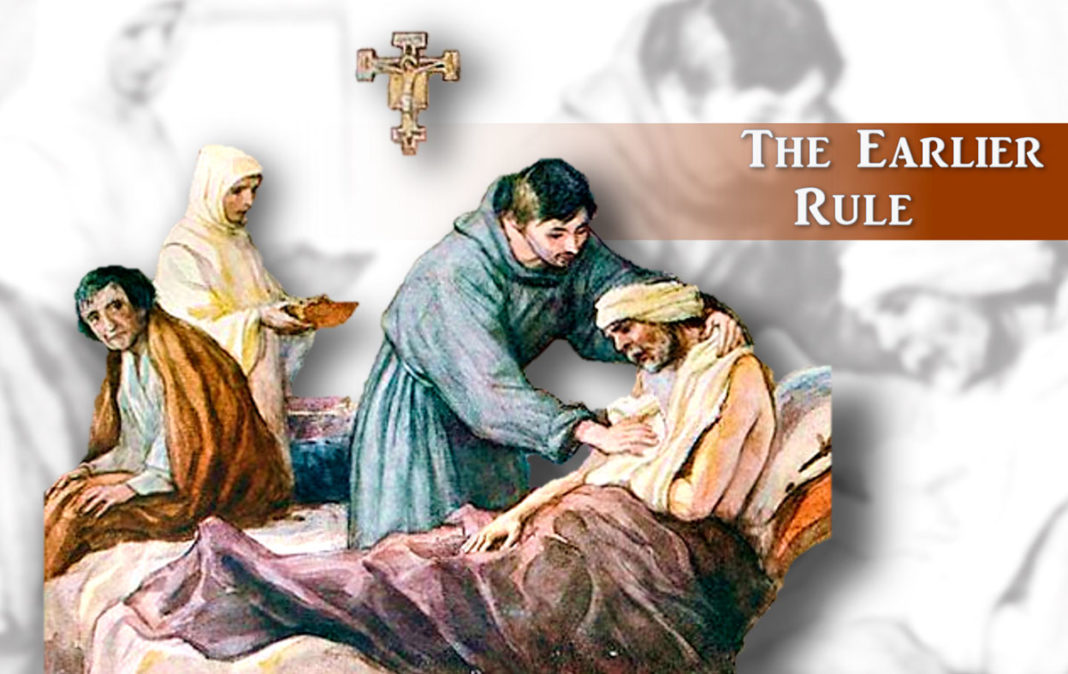St. Francis of Assisi had the great sensitivity to devote an entire chapter of the Earlier Rule[1] to sick friars, pointing out that their care is fundamental within the fraternity. In one of his Admonitions, the Poverello writes: Blessed is the servant who loves his brother as much when he is sick and cannot repay him as when he is well and can repay him. (Admonitions XXIV; FF 174).
In these times, when everything is disposable, throwaway, when whatever is unproductive is tossed away and abandoned, the words of St. Francis awaken our conscience and remind us that a friar is not important because he is productive or because he brings a lot of money into the house or friary. Rather, he is important because of the simple fact that he is a person, a child of God and a brother.
In this consumer society, the elderly, the sick, those with disabilities, children, among others, are the ones who have the most to lose. In chapter X, Francis again mentions the golden rule: If any of the brothers falls sick, wherever he may be, let the other brothers not leave him behind unless one of the brothers, or even several of them, if necessary, is designated to serve him “as they would want to be served themselves” (Earlier Rule X, 1; FF 34) [2].
How do we treat and serve our elderly and sick friars, today, as a society, a fraternity, a community or a family? Are they throwaway? Observe how the government of your country regards this sector of people, and you will discover whether your politicians are truly interested in the people or not.
In the previous reflections, we talked about service and power, the friars’ relationship with their superior and vice versa. Therefore, let us consider the following: if a Minister Provincial or a superior thinks of his friars as “chess pieces”, “ministry machines” or “stopgaps”, he will certainly “use” those friars who can respond to his needs of the moment. He will load up “the healthy ones” with a thousand tasks, like pack mules, until they can bear no more or are no longer useful due to stress, fatigue or illness. Clearly, operating this way is not in the spirit of minority, but in the spirit of “I may use you or not, but I do not care about you.”
In chapter X, Francis is inviting us, even after eight hundred years, to recover human relationships, to value a friar, not for his productive capacity, but for the simple fact that he is my brother.
A sick friar is another Christ crying out to us. He is another Crucified One, inviting us and calling us to remember that we are all small and fragile and that we need each other. Our sick friars teach us the meaning of love and patience. They decentralize us and remind us that we are not God.
Until the next reflection!
Friar Elio J. ROJAS
[1] Earlier Rule X: FF 34-35
[2] Mt 7:12



















